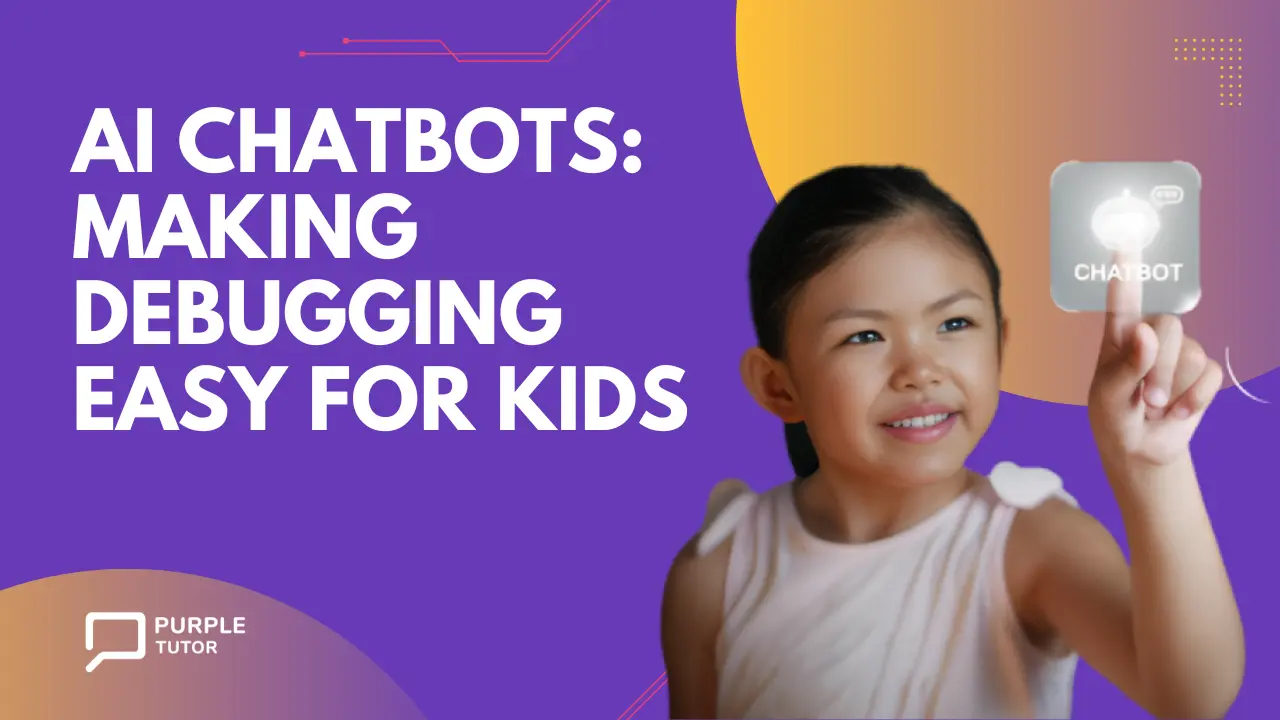How are AI chatbots transforming industries and shaping the future of work?

Artificial intelligence(AI) chatbots are at the forefront of technological innovation, reshaping industries and redefining the way we interact with technology. From customer service and healthcare to finance and education, chatbots are streamlining processes, improving efficiency, and enhancing user experiences.
The future of work is undoubtedly intertwined with AI chatbots. As businesses increasingly adopt these virtual assistants, there is a growing demand for professionals who can design, develop, and manage them. By preparing kids for tech careers involving AI chatbots, we can ensure they are equipped with the skills needed to thrive in the digital era.
Understand the concept of AI chatbots
To prepare kids for tech careers involving AI chatbots, it is important to help them understand the concept itself. AI chatbots use natural language processing and machine learning algorithms to understand and respond to human queries. Explain to kids that chatbots are designed to simulate human-like conversations and provide valuable assistance to users.
Explore real-world applications
To showcase the relevance and impact of AI chatbots, it is helpful to explore real-world applications across different industries. For example, chatbots are widely used in customer service, where they can provide instant and accurate responses to customer inquiries. In healthcare, chatbots can assist in symptom diagnosis or medication management. By discussing these examples, kids can grasp the potential and versatility of AI chatbots.
Foster creativity and problem-solving skills
Preparing kids for tech careers involves nurturing their creativity and problem-solving abilities. Encourage them to think critically and creatively about how AI chatbots can solve real-world problems. Challenge them to design their own chatbot prototypes, considering user needs, functionality, and potential applications. This exercise will enhance their problem-solving skills and encourage innovative thinking.
Emphasize programming and data analysis
To develop AI chatbots, programming and data analysis skills are essential. Introduce kids to programming languages such as Python and expose them to data analysis tools. Encourage them to explore datasets and develop algorithms that can power chatbot intelligence. This hands-on experience will help them develop the technical skills needed for future tech careers.
Nurture communication and empathy
AI chatbots are not just about technology; they also require effective communication and empathy to provide a positive user experience. Encourage kids to develop strong communication skills and empathetic approaches to ensure that chatbots can engage and assist users effectively. This emphasis on soft skills will make them well-rounded professionals in the field.

Encourage continuous learning
The field of AI is ever evolving, so it is crucial to instil a passion for continuous learning in kids. Encourage them to explore online courses, attend workshops, and engage in projects that allow them to stay updated with the latest advancements in AI chatbot technology. This commitment to lifelong learning will enable them to adapt to new technologies and thrive in their tech careers.
Introduce problem-solving and debugging techniques
One of the key skills in tech careers is the ability to solve problems and debug code. Teach kids effective problem-solving techniques, such as breaking down problems into smaller steps and using logical reasoning. Introduce them to debugging tools and strategies, showcasing how AI chatbots can assist in identifying and fixing errors in code. Demonstrate how chatbots can provide helpful suggestions and guide kids through the debugging process.
Foster collaboration and teamwork
Tech careers often involve collaboration and teamwork. Encourage kids to work together on coding projects, including AI chatbot development. By collaborating, they can learn from each other, share ideas, and tackle complex challenges. Emphasize the importance of communication, cooperation, and respecting diverse perspectives in a team setting.
Inspire ethical and responsible AI development
As AI chatbots become more prevalent, it is crucial to educate kids about the ethical implications of AI development. Discuss topics such as bias in AI algorithms and the importance of designing fair and unbiased chatbots. Teach them about privacy and data security considerations when developing AI-powered applications. Instill in them a sense of responsibility in using AI technology for the benefit of society.
In conclusion, preparing kids for tech careers involving AI chatbots is crucial to equip them with the skills and knowledge needed for the future of work. By helping them understand the concept, exploring real-world applications, fostering creativity and problem-solving skills, emphasizing programming and data analysis, nurturing communication and empathy, encouraging continuous learning, introducing problem-solving and debugging techniques, fostering collaboration and teamwork, and inspiring ethical and responsible AI development, we can set them on a path to success in this exciting field. AI chatbots are shaping the future of work, and by preparing kids for it, we are empowering them to become the innovators and leaders of tomorrow.
Frequently Asked Questions (FAQs)
1.Can I participate in a free class?
A: Yes, the first demo class is free of charge. You can book the free class through the provided booking link.
2.Is the coding course schedule flexible?
A: Our coding courses for kids offer flexibility. You can choose any time and day that suits your child’s schedule.
3.How can I determine the right coding course for my child?
A: Our teachers assess the student’s level during the demo class and suggest a suitable course based on their evaluation.
4.Will my child receive a certificate?
A: Yes, students receive certificates upon completing each course. The certificate acknowledges the skills acquired and the level of mastery achieved.
5.What are the requirements for learning coding with Purple Tutor?
A: To learn coding with Purple Tutor, you need a laptop or computer with a webcam and a stable internet connection.